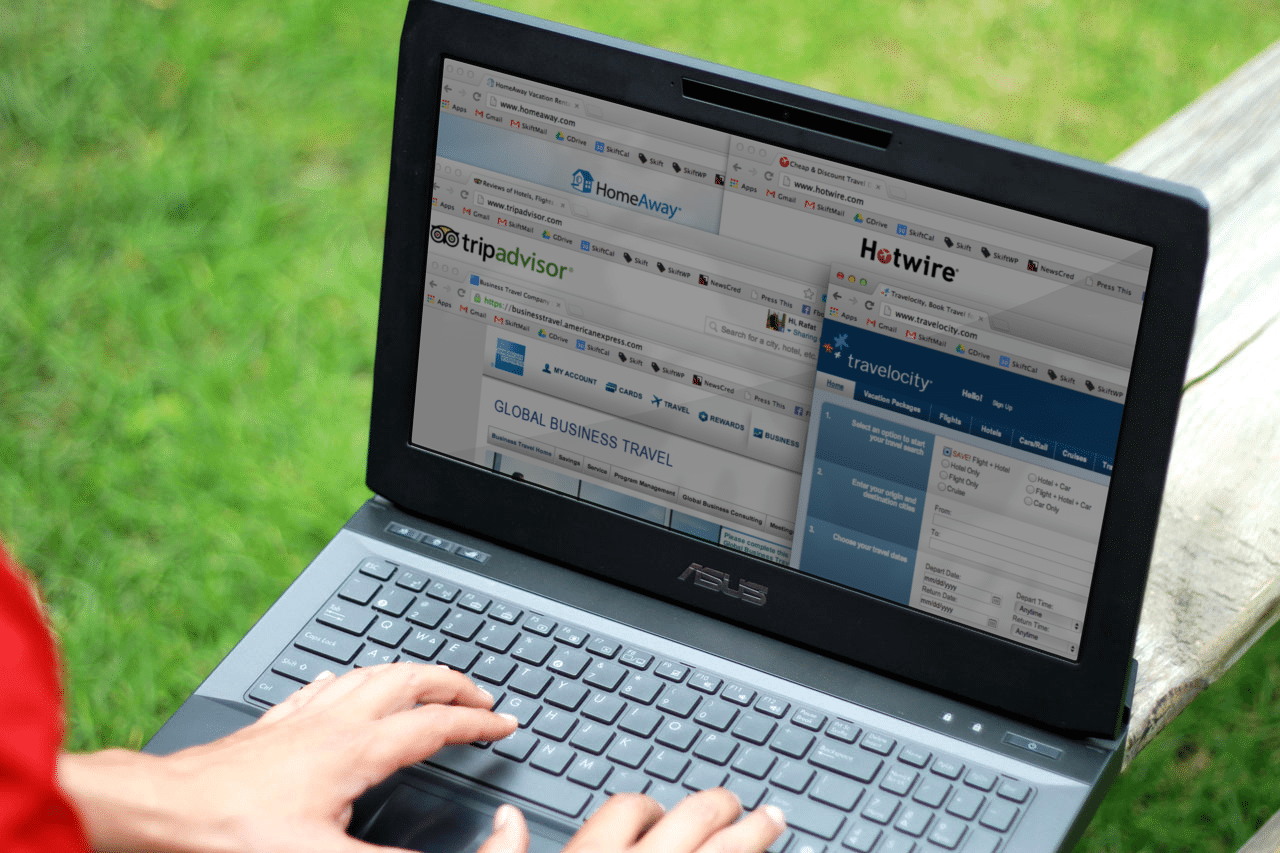Skift Take
Perhaps the immediate challenges that TripAdvisor and HomeAway face will be temporary bumps in the road. For Hotwire, it's a toss-up on whether it can get its mojo back, and American Express Global Business Travel and Travelocity have already seen their best days.
It is gut-check time for five big travel 1.0 brands, most of which made their bones during the growing-up phase of online travel.
Each of them — TripAdvisor, Hotwire, HomeAway, Travelocity, and American Express Travel — faces a key transition, a signature moment, that may determine their long-term fates.
We have outlined the key challenges each one of them face, almost midway point into 2010s decade:
TripAdvisor
TripAdvisor completed the rollout of its hotel metasearch offering on mobile and its global websites several months ago, and the results so far haven’t lived up to expectations.
TripAdvisor, which previously relied on pop-under ads largely for online travel agency websites, is making a big bet that although hotel metasearch will deliver less traffic to advertisers, it will provide them higher conversions and hence higher cost-per-click rates for TripAdvisor.
The company is still working out the kinks from hotel metasearch and says that it expects the biggest hit from the transition would take place in the third quarter, which ends today. TripAdvisor forecasts that it will have the ship righted by the end of the year.
Meanwhile, TripAdvisor today finally debuted its much-delayed TV advertising campaign, and it has pledged to spend $40 million to $50 million on it in 2013. Earlier, there were indications that a test campaign wasn’t received very well.
Despite the slow-going in these very early days of TripAdvisor’s hotel metasearch, no one is under-estimating TripAdvisor’s capabilities and the smart money is betting that TripAdvisor will get its house in order.
Hotwire
Hotwire, which was founded in 2000, led the way in pioneering semi-opaque discounting (consumers know the discounted hotel price in advance, but not the hotel’s identity), spurred many copycats, and has been taking a pummeling from Priceline’s Express Deals and its aggressive TV advertising campaign throughout much of 2013.
Hotwire replaced its president a couple of months ago, and Dara Khosrowshahi, CEO of parent company Expedia Inc., says Hotwire will need to pivot, emphasizing last-minute deals on mobile devices.
Expedia acquired Mobiata in 2010 for its mobile acumen so Hotwire will be able to tap into some in-house expertise as it reworks its mobile offering. Khosrowshahi didn’t provide a lot of detail about Hotwire’s pivot, but if it is toward last-minute or same-day hotel sales, then that field is getting very crowded.
HomeAway
Vacation rental kingmaker HomeAway is in the midst of a transition that is almost as big as TripAdvisor’s.
HomeAway is diversifying beyond is heretofore bread-and-butter subscription listings business, and is giving homeowners the option of free listings in exchange for payments when they take a booking.
But, there are signs that the pay-per-booking model isn’t receiving the traction that HomeAway and its shareholders expected, and that growth in HomeAway’s subscription business has slowed.
Morgan Stanley still likes HomeAway’s long-term prospects, but downgraded the stock last week from overweight to equal-weight.
HomeAway in the long term faces competition from Airbnb and many other players as some observers believe the vacation rental and peer-to-peer apartment rental sectors are ripe for lots of overlap.
Travelocity
Privately held Travelocity is already on the path to near-irrelevance as it agreed beginning in 2014 to outsource its North American websites and supplier relationships to Expedia.
Massive staff cuts are in the works at Travelocity, which will turn itself into a relatively small marketing organization to squeeze some value out of its brand recognition. Any sales Travelocity makes will also help Expedia.
The transition takes a lot of costs off the books for Travelocity’s parent, Sabre, as it moves toward an IPO next year.
American Express Global Business Travel
American Express Global Business Travel, which claimed $29.2 billion in 2012 sales, is in the midst of talks to enter into a 50-50 joint venture with an investment group led by private investment firm Centares.
The joint venture would supposedly lead to increased investment in Amex’s business travel unit, but it portends less of a commitment to the sector just as Amex as a whole has been shedding some assets and carrying out a dramatic restructuring.
What Next?
While some of these companies likely will be able to surmount their current challenges, others are clearly withering and will fall off the cliff.
New travel brands will emerge, as they always do, in travel and outside it.
Up-and-coming candidates in line to make their mark as big travel brands could include HotelTonight, Airbnb and Uber, to name a few. The are thoughtful pros and cons to be made about each.
The question remains, though, whether any of them will grow into becoming the next Expedia, Priceline or TripAdvisor — or whether the hype exceeds their fundamentals and they fade, Groupon-like.
The Daily Newsletter
Our daily coverage of the global travel industry. Written by editors and analysts from across Skift’s brands.
Have a confidential tip for Skift? Get in touch
Tags: homeaway, hotwire, travelocity, tripadvisor
Photo credit: The five travel brands at a critical point in their lifecycle.
